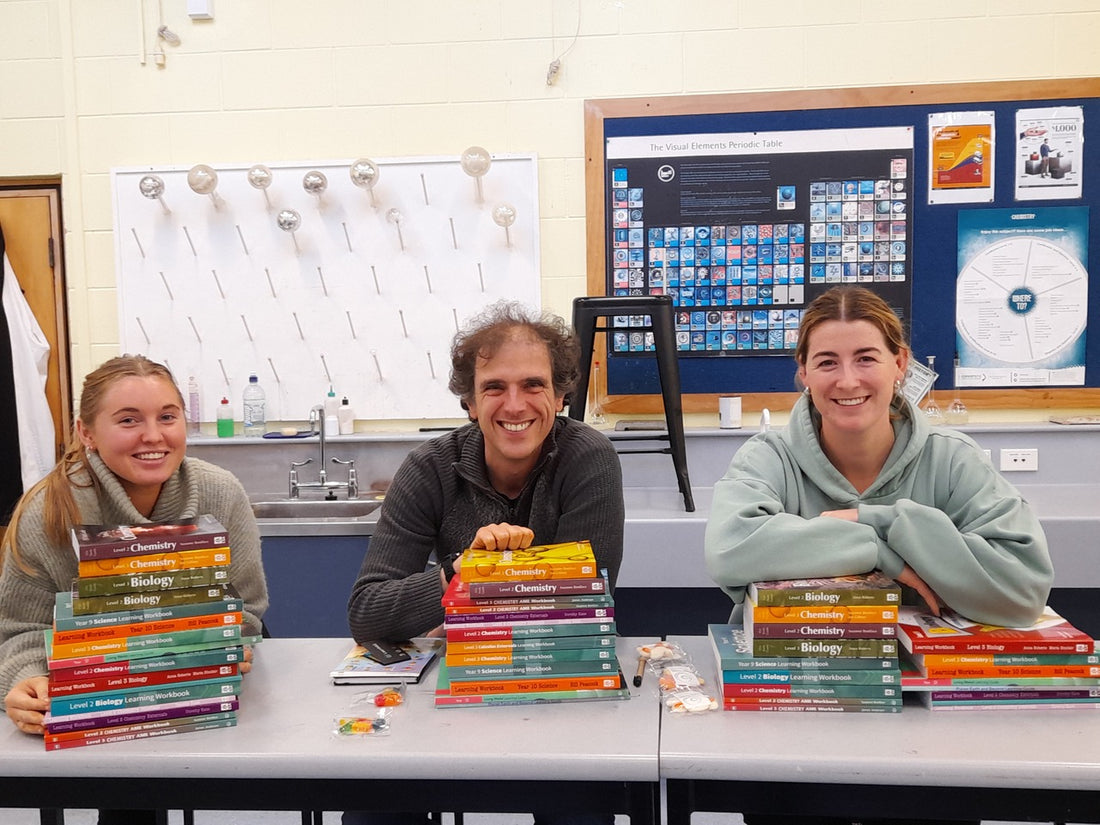
Why become a science teacher in New Zealand?
Sally MangaiTeaching is often described as one of the most challenging yet rewarding professions. Despite the demands, many people are still inspired to enter the classroom. So, why become a science teacher in New Zealand? We recently heard from two student teachers in Dunedin, Danielle and Bart, about their journeys into teaching. They shared with us their experiences so far and how science teaching resources like those from LearnWell are helping them prepare for the future.
Inspiration
Danielle's family influence and love of mentoring sparked her journey into teaching. “My dad switched careers during the pandemic to become a technology teacher, and that inspired me. I’ve always enjoyed mentoring young people, especially through hockey umpiring. Yes, it's a challenging career - but teachers can positively influence kids' lives”.
For Bart, teaching offered a meaningful career change after 20 years in academia and different businesses. “I’ve always loved working with people, especially in practical lab sessions at university. When my contract ended, I realised teaching science was the perfect opportunity to share my passion with the next generation.”
Rewarding moments
Danielle and Bart agree—the best part of teaching is watching students grow. Danielle says, “Seeing students succeed, even in small ways, is the most rewarding part.”
Bart highlights the joy of connection. “It’s amazing when a quiet student begins to open up. Those moments are priceless.”
How LearnWell resources support science education
LearnWell resources are a game-changer for science teachers in New Zealand. Danielle says, “They align with the NZ Curriculum and offer practical exercises that engage students and deepen understanding.”
Bart echoes this sentiment. “The Level 3 Chemistry Learning Workbook is excellent. It simplifies complex ideas and supports both teaching and student understanding. I’ve been using it a lot already, and I’m so grateful to have it.”
Lessons from training
Danielle credits her mentor, Logan Park High School's Dr Murray Thompson, with helping her build structure in the classroom. “He emphasises clear boundaries. They create trust, build professional relationships, and make classroom management easier. That way, learning takes centre stage.”
Bart highlights the importance of hands-on experience. “Dr Thompson says, ‘Teach as much as you can,’ and it’s true. Every lesson helps you grow—whether it’s learning how to engage students or managing the classroom.”
Memorable teaching experiences
Danielle feels proud of what she’s achieved during her practicums. “Teaching a Year 12 genetics unit and a Year 9 ecology course was incredible. I gained so much confidence and built a solid foundation of resources.”
For Bart, the magic is in the “aha” moments. “When students grasp a concept, it’s the best feeling. Seeing their understanding click into place is worth all the effort.”
The role of technology in teaching science
“Students are naturally drawn to technology. Our job is to guide them in using it effectively. I’d also love to explore AI as a teaching tool.”
Danielle agrees but emphasises balance. “Technology makes abstract ideas more accessible, but it’s important to use it purposefully to enhance learning.”
Advice for future student teachers - why become a science teacher in New Zealand?
Danielle gives practical advice: "Stay organised, manage your time well, and collaborate with your mentor teacher. Preparation is everything. Combine your scientific knowledge with a personality that is fair and fun to keep your lab safe and make the most of it.”
Bart encourages observation before committing. “Teaching is rewarding but demanding. Spend time in classrooms to see what the job really involves.” He adds, “If you're passionate about science and have a solid science background, it helps you create a bigger picture for your students.”
Danielle and Bart’s passion for science and education shines through in every aspect of their journey. With their dedication, and tools like LearnWell resources, they’re well-equipped to inspire students across New Zealand.
Thank you, Danielle and Bart, for sharing your stories and for your commitment to shaping the next generation of scientists.